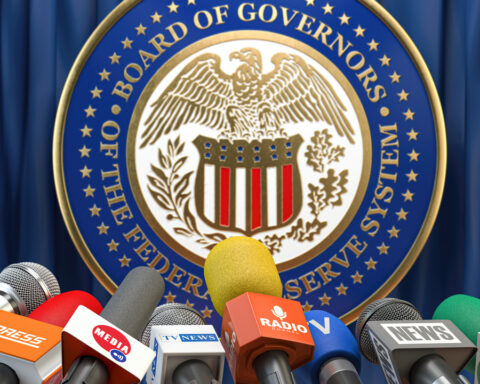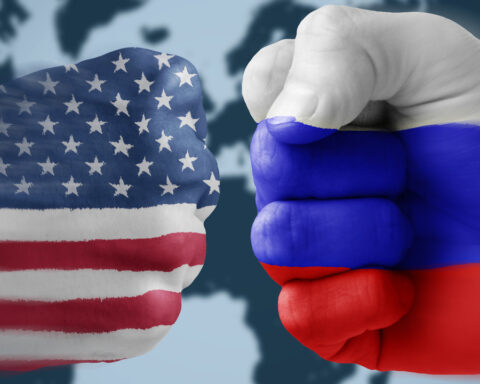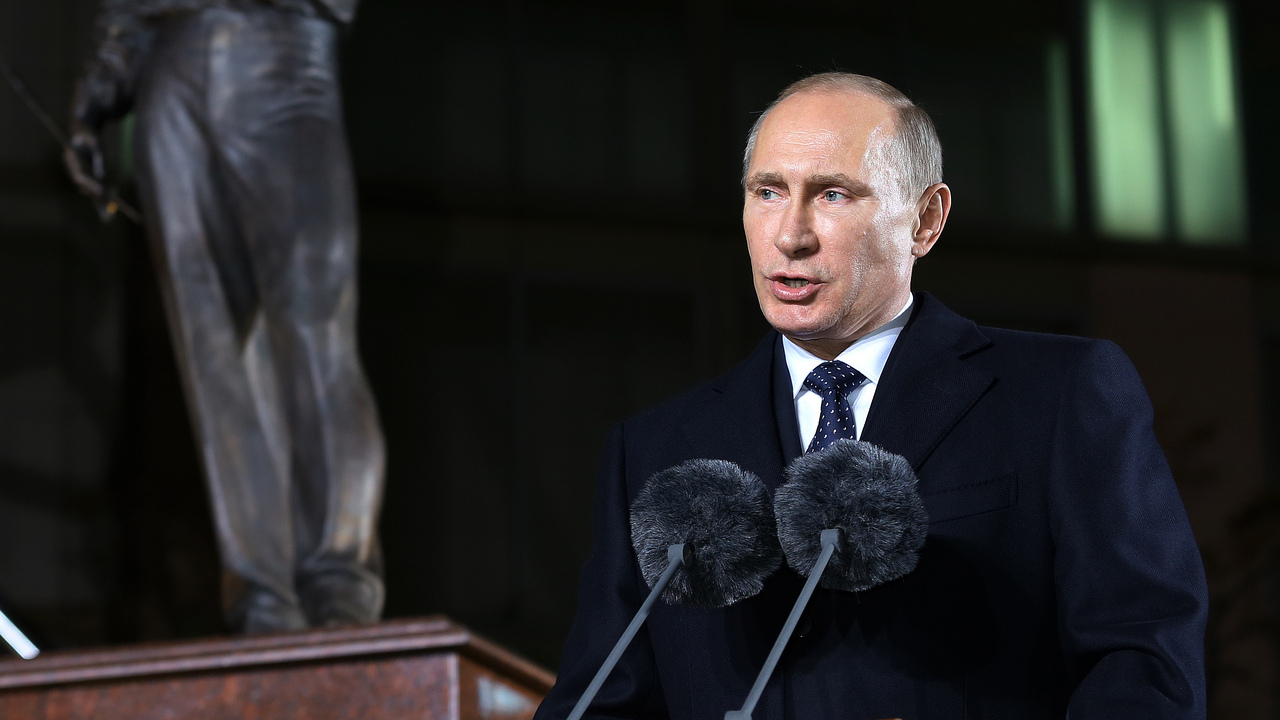Despite increasingly strident public outcry from the targets of the IMF’s counterproductive conditional lending program, as well as the international community in general, the IMF remained largely aloof concerning institutional reform. In 1999 – a period in which the Southeast Asian financial crisis was still in full swing, and Russia’s economy was in shambles – IMF Managing Director Michel Camdessus doubled down on the IMF’s ideological agenda in his address to the organization’s Board of Governors. Camdessus confidently declared, “If we keep a steady nerve, if all countries pursue stability, structural adjustment, and orderly liberalization of their economies, this crisis can be overcome. Countries at the heart of the turmoil can emerge stronger and better prepared for the challenges of the next decade.”[1] As such, though the IMF remained comparatively absent from crisis lending in the ensuing years due to its increasingly negative stigma, 2008’s Global Financial Crisis gave the Fund yet another opportunity for relevancy. The deepening recession severely impacted highly developed and developing economies alike to the point that a rejuvenation of the IMF’s lending program came to be seen as necessary to maintain financial solvency. A frantic meeting of world leaders at the G-20 resulted in granting the IMF a substantial ad hoc increase to its lending capacity and scope of operations, conditional upon the IMF’s adoption of institutional reforms surrounding representativeness, transparency, and oversight mechanisms.[2] This push for reform was based partially upon recent memory of IMF controversies, but was equally based upon maintaining the IMF’s legitimacy – especially as many developing states had developed intense distrust of the IMF’s intentions and capabilities.[3]
An October 2010 summit – convened after the crisis had been substantially mitigated – attempted to memorialize these large-scale changes. The agreement established an overall doubling of the IMF quota from member states, a realignment of the quota’s structure to ostensibly better represent ‘emerging market’ (EM) states, and a general reshuffling and expansion of the Executive Board from 20 to 24 seats.[4][5] New IMF Managing Director Dominque Strauss-Kahn would declare success, asserting: “We can only be effective if we are legitimate, and we can only be legitimate if we are representative.”[6] Yet, as Robert Wade writes, these changes are “hardly major relative to the rise in multipolarity.”[7] Ngaire Woods goes further, asserting that great powers such as the United States “have not relinquished their command of the tiller of the main multilaterals – the IMF and the World Bank – even as it becomes clear that the future efficacy of those institutions requires them to do so.”[8] Other authors maintain that these paltry successes reached the limits of what was politically possible. Nothing greater could be achieved due to the vested interests of powerful states seeking to maintain their profound leverage.[9] The IMF therefore remained nearly identical to the unrepresentative, opaque, insulated, and ultimately illegitimate organization that had attracted widespread condemnation a decade prior. Resultingly, despite empty rhetoric from leaders such as Strauss-Kahn, little has changed in terms of institutional structure or policy objectives in the years since reform. In fact, some authors find that the scope of the conditional lending program – still riven with neoliberal imperialism – has only widened in recent years.[10] Interestingly – evidence supports that while conditionality is once again on the upswing, it is relaxed for strategically important countries; members of the United Nations Security Council receive about 30 percent fewer conditions than other countries, on average.[11]
Why, then, has reform been so ineffectual, and how has the IMF remained so insulated from institutional overhaul despite the damage it causes? One problem is its organizational culture, which lies at the root of the organization’s commitment to neoliberal policy diffusion. Michael Barnett and Martha Finnemore have written extensively on the impact of culture upon institutional characteristics and agendas. They argue that culture can develop a dysfunctional “pathology” if a high degree of insulation exists. Organizations insulated from external feedback “often develop internal cultures and worldviews that do not promote the goals and expectations of those outside the organization who created it and whom it serves.”[12] Professional training, recruitment practices, and normative orientation are major components of this cultural homogenization, and the IMF clearly illustrates all three. Stephen Nelson has put the IMF’s culture, specifically within its bureaucracy, under a microscope. He has found that, generally speaking, its 2,600 experts almost uniformly espouse neoliberal principles.[13] He cites reports from the IMF’s watchdog – the Independent Evaluation Office (IEO) – that identify high degrees of groupthink, biased research, and narrow viewpoints that do not consider alternative explanations. To empirically portray this issue, Nelson collected the curriculum vitae of nearly 1000 appointees to top level IMF positions. 47 percent received a graduate degree from a top-thirty economics department within the United States; further, those universities served as the training grounds for most of the IMF’s senior economists. Nelson concludes, “Recruiting the bulk of the staff members of an organization to ensure that they share one kind of professional background tends to exacerbate rather than mitigate the pathologies that impede the ability of the IMF to carry out its mission.”[14]
Nelson also references that the organization is allowed to operate relatively autonomously due to its funding mechanism; the IMF’s operational budget is entirely financed via the interest on the loans it collects.[15] It is, therefore, not reliant on the contributions of member states – as such, states cannot exert leverage by refusing to fund the organization. Essentially, the IMF can attach conditions when it funds other states, but states do not have the power to return the “favor” when they desire institutional change. This budgetary mechanism might provide the IMF with the autonomy it needs to affect real change, if for the absence of the second major reason that true reform has failed: the interests of the United States. The U.S. was able to form an institutional structure during the original Bretton Woods Agreement in 1944 that would enduringly cater to their interests. This corresponded to its new role as the leader of the nascent liberal international order, a position the US leveraged to institutionalize special privileges within the newly established intergovernmental organizations.[16] Specific to the IMF, this is reflected in the establishment of the dollar as the world’s reserve currency, as well as in the voting structure. Vote shares are roughly analogous to quota contributions, which the U.S. knew would always heavily skew in their favor due to its level of economic development. One enduring ramification of this long-term strategic orientation is the permanent ability of the United States to veto any policy decision made by the Fund’s governance committees, a subject of contention during the 2010 reforms.[17] Due to the enduring presence of this veto, Randall Henning contends, “No international organization reflects the economic policy preferences of the United States more faithfully than the IMF.”[18]
Much has historically been written of the Fund’s subservience to U.S. interests, and recent studies continue to illustrate this. Michael Breen finds that the IMF’s largest shareholders – of which the United States occupies the pre-eminent position – will collaborate during governance votes to reduce conditionality, when binding strictures might cause economic effects adverse to the shareholders’ interests.[19] Thomas Oatley and Jason Yackee find that American policymakers’ influence can be reflected via the size of IMF loans. When the U.S. has less interest in the target country, smaller loans are provided; when the U.S. has a greater interest, larger loans are provided. Moreover, they find evidence linking IMF policy to the interests of U.S. financial institutions working through government officials.[20] In a particularly compelling study linking the IMF to U.S. foreign policy goals, Axel Dreher and Nathan Jensen contend that the U.S. will use its leverage to adjust conditions on loans during foreign elections. They find evidence supporting their claim that “For countries that are not strongly allied with the United States, the IMF would restrain fiscal and monetary policy expansion by setting tight conditions on loans. For countries that are allied with the United States, the IMF would be more lenient, rewarding incumbent politicians with loose conditions and the opportunity to manipulate the economy for electoral gain.”[21]
If the IMF is indeed a creature of the United States, then what is the problem with this, from the perspective of the U.S. government? After all, if one removes all normative considerations surrounding fairness, transparency, representativeness, and morality, is it not the duty of a government to use any available tools in its promotion of the national interest? Putting aside the important question of what exactly constitutes the national interest – especially in an increasingly polarized society – IMF policies have clearly negatively impacted short and long term U.S. strategic objectives.
One, contrary to what is supposed to be the IMF’s primary mandate, the Fund has often served to disrupt the global economic system. As seen in Latin America, Asia, Russia, and elsewhere, IMF loans have directly contributed to the destabilization of numerous macroeconomies, have detrimentally altered political institutions, and have generally poisoned public opinion towards both the IMF and the United States. These destabilizing influences, especially in today’s increasingly globalized financial markets, ripple back to the United States and could potentially cause chain reactions analogous to financial crises of the past. It is in the economic self-interest of the United States to promote fiscal and monetary stability – regardless of what values or ideologies might be present in other nations.
Two, the ability of the United States to conduct effective foreign policy is being hamstrung by its attempts to maintain hegemony in an increasingly multipolar world. Diplomacy and cooperation hinge upon trust, which the United States has violated at critical junctures. Moreover, the illustrated negative effects of IMF loans upon democracy might lead to new governments that espouse more authoritarian principles, which would inherently lead to a disunion in policy objectives. This goes for friends and foes alike. In fact, it would not be far-fetched to consider that the recent shift towards more regionally focused economic organizations is a direct result of the failures of the IMF to provide effective and legitimate global economic governance. Members of the European Union – historically some of the closest allies of the United States – are moving to establish a “European Monetary Fund” in response to general dissatisfaction and mistrust of the IMF, recently exhibited via the IMF’s response to the European sovereign debt crisis.[22] The European Parliament is considering such a move so that the European Union can be better positioned against future financial crises and offer financial assistance unconditionally.[23]
Three, U.S. and IMF policies are pushing disillusioned states directly into the arms of China, which has set itself up as a rival option for unconditional loan assistance and economic development. John Williamson – who originally coined the term “Washington Consensus” to describe the western consolidation around neoliberal exportation, designates this new paradigm as the “Beijing Consensus.” In his view, the general financial instability fostered under western-based global governance has helped push states already disaffected by IMF policies into China’s welcoming embrace.[24] Ironically, the aforementioned Japan-led effort to establish the Asian Monetary Fund – which the United States and the IMF destroyed over twenty years ago – has been revived, albeit under the sponsorship of a far more powerful and influential rival. Moreover, China’s influence and reach is increasingly globally focused. In addition to Asia, Latin America has been particularly receptive to Chinese loans and partnerships, as have developing states in Africa.[25] Can anyone blame them?
China has recently scaled up its engagement with this “contested multilateralism”[26] to weaken IMF and U.S. influence.[27] It is working. Chinese Paramount Leader Xi Jinping has made this loosely organized economic confederation a top priority; in 2017, Xi held the Belt and Road Forum for International Cooperation in Beijing to expound upon China’s decidedly more welcoming stance towards global economic governance. 29 heads of state and government from Asia, Europe, Africa, and Latin America were in attendance, complemented by 56 cabinet ministers sent by still other states. Five of America’s closest allies – Canada, Japan, Mexico, Morocco, and South Korea – even risked sending officials. Overall, 1200 global elites attended the conference, with 60 of them representing international organizations.[28] Lawrence Broz and his fellow authors find support for their argument that grievances with the current international order are pushing states towards China, and that states deleteriously impacted by IMF policies are more likely to support China taking on the mantle of global economic governance. Generally, the authors conclude that China’s “focus on stable long-term infrastructure and development finance has helped win the support of foreign leaders who have seen their economies harmed by global financial instability.”[29]
It is clear that the IMF provides little tangible benefit to the global economic system, with its beneficiaries being predominantly western financial institutions, its bureaucracy, and the global economic elites that make up its governance structures. Perhaps rather than attempting to reform the IMF along the lines of fairness and transparency, a better option might be to simply remove loan conditionality, cease the utilization of the IMF as an ideological weapon, and reduce the IMF’s scope to better align with the organizational mandate it originally espoused. After all, significant problems with the IMF have only materialized since its evolved in the 1970’s, and exponentially increased its scope of operations. This could go a long way towards rebuilding trust and enhancing multilateral cooperation, increasingly vital in a world that is no longer singularly dictated by United States policy. As John Ikenberry eloquently concludes in his discussion surrounding the evolution of the liberal global order: “That order is now not simply an extension of American power and interests, but has taken a life of its own. American power may rise or fall, and its foreign policy ideology may wax and wane between multilateral and imperial impulses, but the wider and deeper liberal global order is now a reality to which America itself must accommodate.”[30] If the United States desires an international governance system that still caters at least partially to U.S. interests, it is necessary to institutionalize change that can accord them certain preferences while the IMF still holds even a modicum of legitimacy.
Photo by g0df4ather, GettyImages.
[1] Address by Michel Camdessus, Chairman of the Executive Board and Managing Director of the IMF, to the Board of Governors of the Fund, 4 October 1999.
[2] Joe Marie Griesgraber, “Reforms for Major New Roles of the International Monetary Fund? The IMF Post-G-20 Summit,” Global Governance, Volume 15, 2009, pp. 179-185.
[3] Dries Lesage, Peter Debaere, Sacha Dierckx, and Matthias Vermeiren, “IMF Reform After the Crisis,” International Politics, Volume 50, Issue 4, (2013): pp. 553-578.
[4] The IMF’s website (https://www.imf.org/en/About/Organization-Chart) gives a detailed overview of its governance system and voting structure.
[5] Wade, R.H. (2011) “Emerging world order? From multipolarity to multilateralism in the G20, the World Bank, and the IMF.” Politics & Society 39(3): 347–378.
[6] Dominique Strauss-Kahn, “The Triple Comeback – the Impact of the Financial Crisis on Global Economic Governance,” Speech by Dominique Strauss-Kahn, IMF, 2010. Web. Accessed 13 December 2021.
[7] Wade, 2011, p. 364.
[8] Ngaire Woods, “Global governance after the financial crisis: A new multilateralism or the last gasp of the great powers?” Global Policy 1(1), 2010, p. 60.
[9] Lesage et al., 2013.
[10] Kentikelenis, Alexander, Thomas H. Stubbs, and Lawrence P. King. 2016. “IMF Conditionality and Development Space, 1985-2014.” Review of International Political Economy 23(4): 543-582.
[11] Dreher, Axel, Jan-Egbert Sturm, and James Raymond Vreeland, “Politics and IMF Conditionality,” Journal of Conflict Resolution 59(1), 2015, 120-148.
[12] Barnett, Michael N., and Martha Finnemore. “The Politics, Power, and Pathologies of International Organizations.” International Organization 53, no. 4 (1999): 699-732.
[13] Stephen Nelson, The Currency of Confidence: How Economic Beliefs Shape the IMF’s Relationship with Its Borrowers (Cornell University Press, 2017).
[14] Nelson, 2017, p. 201.
[15] Ibid.
[16] Ikenberry, G. John. Liberal Leviathan : the Origins, Crisis, and Transformation of the American World Order, Princeton: Princeton University Press, 2011.
[17] Lesage et al., 2013.
[18] Henning, R.C., “US Interests and the International Monetary Fund,” PIIE Policy Brief no. PB09-12, 2010, Washington DC: Peterson Institute for International Economics.
[19] Breen, Michael. “IMF Conditionality and the Economic Exposure of Its Shareholders.” European Journal of International Relations 20, no. 2 (June 2014): 416–36.
[20] Oatley, Thomas, and Jason Yackee. “American Interests and IMF Lending.” International politics (Hague, Netherlands) 41, no. 3 (2004): 415–429.
[21] Dreher, Axel, and Nathan M Jensen. “Independent Actor or Agent? An Empirical Analysis of the Impact of U.S. Interests on International Monetary Fund Conditions.” The Journal of law & economics 50, no. 1 (2007): p. 106.
[22] Thomas Jost and Franz Seitz. “Designing a European Monetary Fund: What Role for the IMF?” Institute for Monetary and Financial Stability, Goethe University Frankfurt. Working Paper (February 2021).
[23] Scheinert, Christian. “Establishment of a European Monetary Fund (EMF).” European Parliamentary Research Service (March 2019).
[24] Williamson, John. 2012. Is the “Beijing Consensus” Now Dominant? Asia Policy 13 (January):1–16.
[25] Gallagher, Kevin P., Amos Irwin, and Katherine Koleski, “The New Banks in Town: Chinese Finance in Latin America,” Inter-American Dialogue, 2012.
[26] Morse, Julia C., and Robert O. Keohane, “Contested Multilateralism,” The Review of International Organizations 94 (4), 2014, 385–412.
[27] Sundquist, James, “Institutional Eclipse: How Chinese Loans Substitute for IMF Assistance,” Yale Department of Political Science Working Paper. (September 2021).
[28] Broz, J. Lawrence, Zhiwen Zhang, and Gaoyang Wang, “Explaining Foreign Support for China’s Global Economic Leadership,” International Organization 74(3), 2020, 417–452.
[29] Broz et al., 2020.
[30] Ikenberry, 2011, p. 332.
Jack McPherrin is the managing editor of 1818 Magazine. Jack works as the research editor for the Editorial Department of The Heartland Institute, where he also contributes to the mission of the Socialism Research Center as a research fellow. He is in the final stages of completing his Master’s Degree in International Affairs from Loyola University-Chicago, where his myriad research interests primarily encompass domestic and international economic policy, global institutions, authoritarian regimes, and foreign affairs - with a particular emphasis upon Russia and China. Prior to his graduate pursuits, Jack spent six years in the private sector after graduating from Boston College with a dual Bachelor's Degree in Economics and History. He currently resides in the Lincoln Park neighborhood of Chicago, a few short miles from where he was raised.








